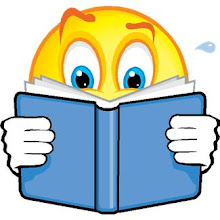When people talk about folk music in Venezuela these days, the idealized images of the country side evoked in simple melodies do not probably come to mind as much as a display of virtuosity by a classically-trained musician performing complex rhythms and musical textures on a stage do. A robustly state-funded art system and a thriving national Youth Symphony Orchestra program have eroded the notion of art music as a commodity of the elites. In virtually every corner of Venezuela, classical musicians are admired with a popular devotion previously reserved for professional sport players and telenovela stars. Over the past twenty years or so, a number of classically trained musicians have devoted great efforts to exploring traditional music from the lenses of the academia. This notion, of course, is not a new one by any account. But as a sociological phenomenon the pervasiveness with which this occurs in Venezuela has reached almost endemic proportions. Take Ensamble Gurrufío, one of the many bands that perform this type of music. With a dozen cds and over two decades of history, it has been devoted to “the research, arrangement and reinterpretation of Venezuelan instrumental music… [in] a classically-schooled, educated style, but allowing for improvisation as a fundamental element” (Wikipedia, of course). Indeed, the music of Gurrufío is far removed from the folk context in which many of the pieces they perform originated. Yet, those works resonate with a new, classically-proficient, audience, which has become used to appreciating musical virtuosity, particularly of the type that involves native airs and rhythms.
C4 Trio is another great example of this new Venezuelan folklore. This band takes its name from the instruments they play, the Venezuelan Cuatro. In their hands the instrument is transformed into a channel for individual virtuosity as well as a type of Venezuelan identity card. It is not a mere coincidence that all these bands rely so heavily on the Cuatro. With such complex musical textures and technical display, the Cuatro seems to play a dual role as a musical instrument, on the one hand, and as a source of authenticity, on the other.
The novelty of this musical language has plenty of followers in Venezuela. Some of these bands have been established for many years and enjoyed of a significantly large fan base consisting primarily of educated city dwellers. Of particular interest for their popular appeal are bands such as El Cuarteto, Pabellón sin Baranda, Eddy Marcano and his Acoustic Quartet. Every time I come across with a new artist or band (which occurs rather frequently) it feels as though the limits of natural law have been pushed yet again. Does musical virtuosity have an end?
Friday, March 5, 2010
Subscribe to:
Posts (Atom)
